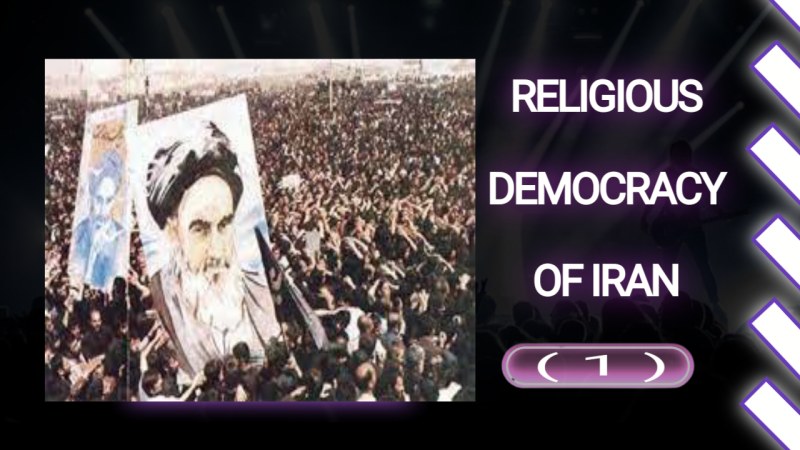- Religious democracy and its most important component, that is, valuing people's choice and consent in determining their political destiny in the form of the implementation of the Velayat al-Faqih system, has made its way into the political literature of the world.

Religious democracy of Iran
Religious democracy:
Thhe Velayat al-Faqih system is in line with the popular representation of the political rule of the Infallible Imams (peace be upon them). Therefore, valuing the people's votes, as the most important aspect of the acceptance of the Velayat al-Faqih system, branched off from the divine event of choosing the sovereignty and leadership of the infallible Imams (peace be upon them) by God and its acceptance by the Muslims consensus in the Ghadir Khum region. The necessity of the presence of the majority of the people on the day of Ghadir Khum to announce the succession of the Amir al-Mu'minin Ali (peace be upon him) by the Holy Prophet (peace be upon him) indicates the legitimacy of the will of the people in accepting political sovereignty.
Democracy literally means the rule of the people, although the Greeks basically used it in the sense of the poor or a large population. In fact, the concept of democracy can be equally assumed as a disputed value or a theory that many systems are based on.
Religious democracy is one of the most important types of democracy under the title of the ruling system of Velayat al-Faqih and it was implemented in the form of extensive elections in determining the representatives of the Islamic Council and the presidency by Imam Khomeini (may God have mercy on him). In historical religious thought, velayat al-faqih means the right to hold the office of a comprehensive jurisprudence for planning and leading the society. From the point of view of Shiism, the right to rule after the Holy Prophet (PBUH) is fixed for the Infallible Imams (AS), and the qualified jurists will also have the right to take charge of the social and political affairs of the society in the era of the absence of the Infallible Imam (AS).[1]
Click to Next Part



